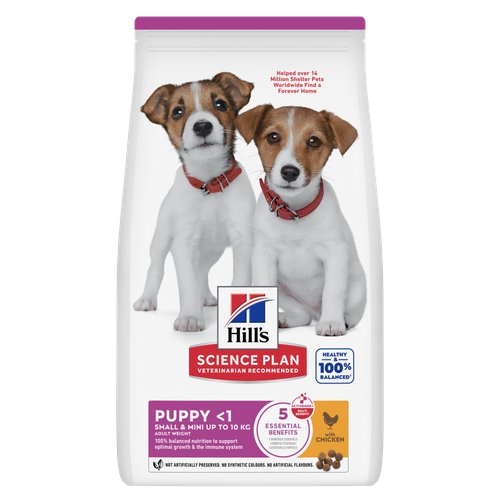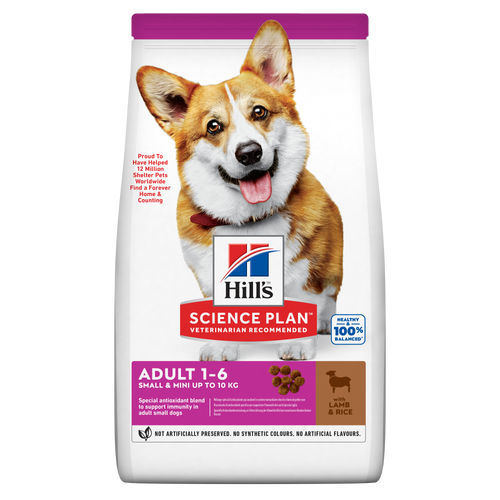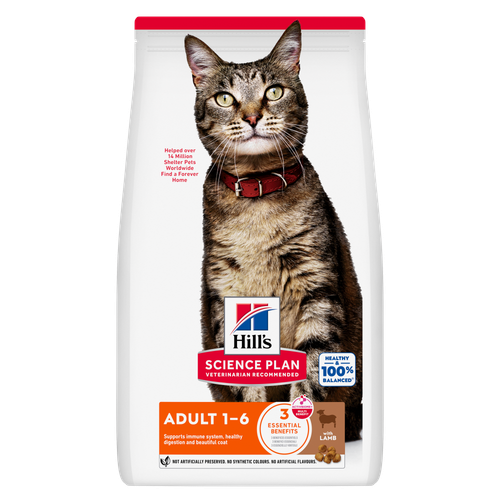Pet Care Centre
Get the latest pet stories, news, tips and advice right here.
Sort & Filter
107 results
sort by

"Why Is My Dog Constipated?" and Other Gastrointestinal Questions
Read More
8 Common Health Problems in Senior Dogs
Read More
Achievable New Year's Resolutions with Your Pet | Hill's Pet
Read More
Adopting an Adult Cat: What You Need to Know
Read More
All About Feline Bartonella
Read More
Are cats trainable?
Read More
Avoiding joint problem flare-ups can be as easy as A-B-C!
Read More
Blood in Dog Urine: What Should You Do?
Read More
Can Dogs & Cats Have Avocados? (& Are They Safe?)
Read More
Can Dogs Be Vegan?
Read More
Caring for Your Senior Cat: Essential Health Tips
Read More
Caring for your puppy's teeth
Read More
Cat Food Taste & Types: Does My Cat Like Their Food?
Read More
Cats and running water
Read More
Causes of Dog Vomit and What It Means
Read More
Charting Your Kitten’s Development
Read More
Choosing the Best Cat Food: What to Look For
Read More
Choosing the Best Cats for Flats
Read More
Cleaning Your Dog's Paws: Tips for Success
Read More
Clipping Dog Nails for Puppy Pedicures
Read More
Coronavirus, COVID-19 and Your Pet: What You Need to Know
Read More
Dealing with dog fleas
Read More
Develop your gut instinct | Hill's Pet
Read More
Diabetes in Dogs: What You Need to Know
Read MoreDifferences Between Male and Female Cats
Read More
Digestive disorders - one of the most common reasons for consulting a vet
Read More
Dog Depression: How to Tell If Your Dog Has the Blues
Read More
Dog Food Taste & Types: Does My Dog Like Their Food?
Read More
Dog and Cat Friends: Created by Fate, Fostered by Family
Read More
Dog teeth cleaning – our 4 tips to keep your dog’s teeth healthy
Read More
Everything You Ever Wanted to Know About Dog Poo
Read More
Facts About Kidney Disease in Dogs
Read More
Feeding Multiple Cats: Setting Up a Feeding Station
Read More
Five tips to stop cats from scratching up the furniture
Read More
Foods that are Dangerous or Toxic to Cats
Read More
Foods that are Dangerous or Toxic to Cats
Read More
Free of Fur Balls
Read More
Fun Games Between Kids & Dogs
Read More
Fun Ideas for Kids and Pets This Summer
Read More
Gastroenteritis in Dogs: What You Need to Know
Read More
Gastrointestinal & Digestive Disorders in Dogs: Types & Causes
Read More
Grain Free Cat Food: What You Need to Know
Read More
Healthy skin and a healthy coat
Read More
Heat Exhaustion in Dogs: Signs Your Dog Is Overheating
Read More
Help! My Dog Doesn't Like Me & I Have a Standoffish Cat
Read More
Helping people with companion dogs
Read More
Helping your puppy to socialise
Read More
Hill's Cat Foods: A Healthy Choice for Your Cat
Read More
How Food Allergies Can Affect Your Dog
Read More
How Pets Help Ease the Transition to an Empty Nest
Read More
How to Clean Dog Ears
Read More
How to Handle Dogs That Dig
Read More
How to Perform CPR on Dogs & Cats
Read More
How to Properly Mix Wet and Dry Pet Food
Read More
How to Tell If Your Dog Has an Upset Stomach & How to Treat It
Read More
How to say Happy Holidays to your dog - without the weight gain
Read More
Important Benefits of Having Your Dog Neutered
Read More
Introducing a New Food
Read More
Is My Dog Sick? How Can I Tell?
Read More
Is Your Dog in Good Shape?
Read More
Microchipping: The Facts | Hill's Pet
Read More
Minerals
Read More
My Cat Won't Eat: What You Can Do to Help
Read More
Nutrition For Healthy Pet Skin and Coat
Read More
Odd Behaviours of Dogs: Running in Their Sleep and More
Read More
People with allergies and dogs
Read More
Pet Home Alone: Back to School's Effect on Your Pet
Read More
Pet Nutrition And Behaviour | Hill’s Pet
Read More
Pregnancy in dogs
Read More
Proteins
Read More
Reasons Why Your Cat is Throwing Up After Eating
Read More
Reasons for Your Cat Vomiting
Read More
Relax Your Mind and Body with Cat Yoga
Read More
Satiety's Important Role in Your Cat's Overall Weight and Health
Read More
Setting the Facts Straight: Common Myths About Your Cat
Read More
Show some love with wet foods: a great choice for pets with health issues
Read More
Skin Allergies
Read More
Small Dog Breeds: What You Need to Know
Read More
Starting to Train Your Kitten to Use the Litter Tray
Read More
Stress in our Dogs: Strategies for Stress Management
Read More
The Aging Differences Between Humans and Pets
Read More
The History of "Fighting Like Cats and Dogs"
Read More
The Right Diet For Your Pet
Read More
The Science Behind Our Love for Pets
Read More
Time apart
Read More
Tips For Feeding A Fussy Eating Cat
Read More
Travelling with your dog
Read More
Urinary Problems Bladder Stones in Dogs
Read More
Using Your Kid's Old Toys as Homemade Cat Toys
Read MoreVegan Cat Food for Carnivorous Felines?
Read More
Vitamins
Read More
Ways to Help Your Overweight Cat Lose Weight
Read More
Weight Loss Goals & How Your Dog Can Help
Read More
Weight loss and management, proven in the real world | Hill's Pet
Read More
Wet vs. dry cat food: which is best?
Read More
What Human Food Does to Your Pet: Human Caloric Equivalents
Read More
What Nutrients Can Help a Pet’s Immune System?
Read More
What should I do about my overweight dog?
Read More
When chewing becomes destructive
Read More
Why Do Small Dog Breeds Live Longer?
Read More
Why Does My Dog Eat Poop?
Read More
Why Is My Cat Peeing Blood?
Read More
Why Your Cat Likes to Scratch
Read More
Why antioxidants are important
Read More
Why do dogs eat grass?
Read More
Your Cat's Five Senses & How They Work
Read More
“Smile!” How to take the perfect picture of your dog
Read More
0 results found
Featured Articles by category
After years of research, experts at Hill’s have determine the gut microbiome affects not only your pet’s digestive health but their overall health.















